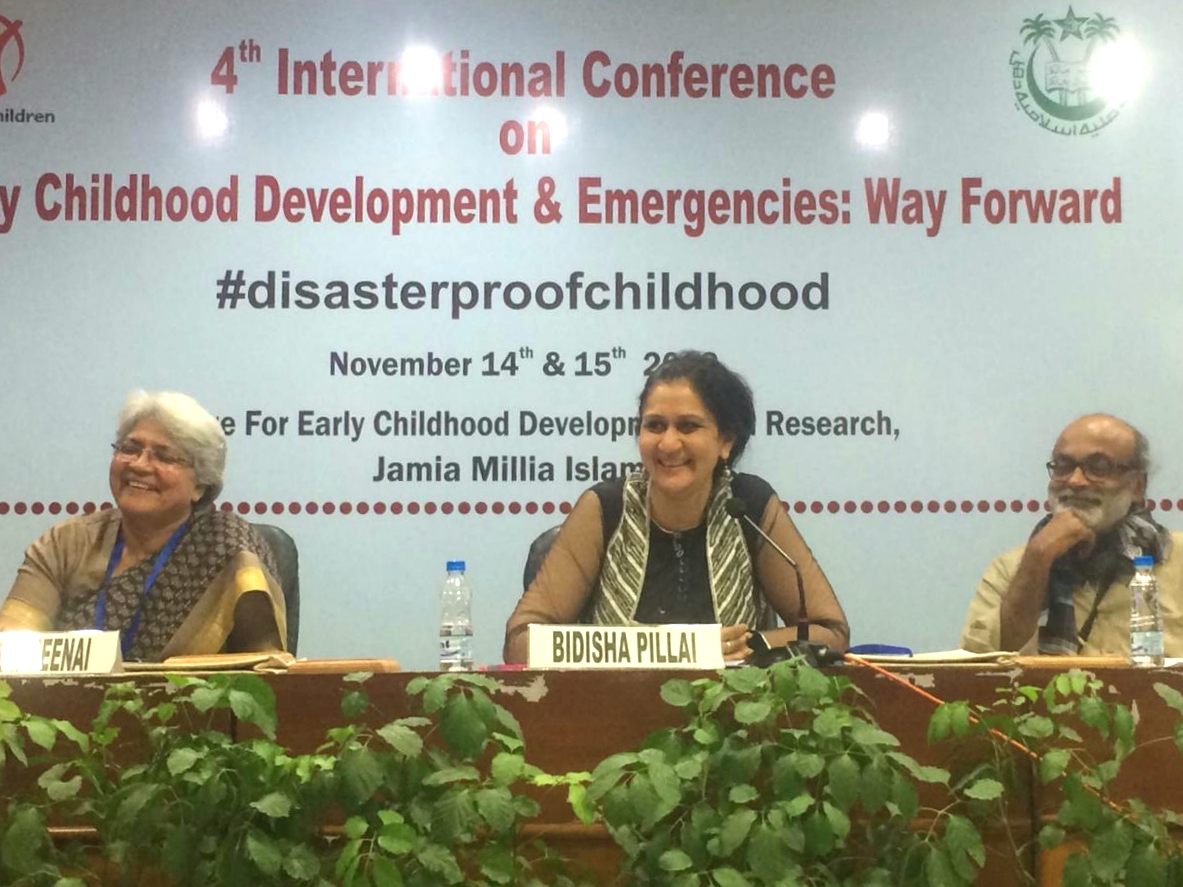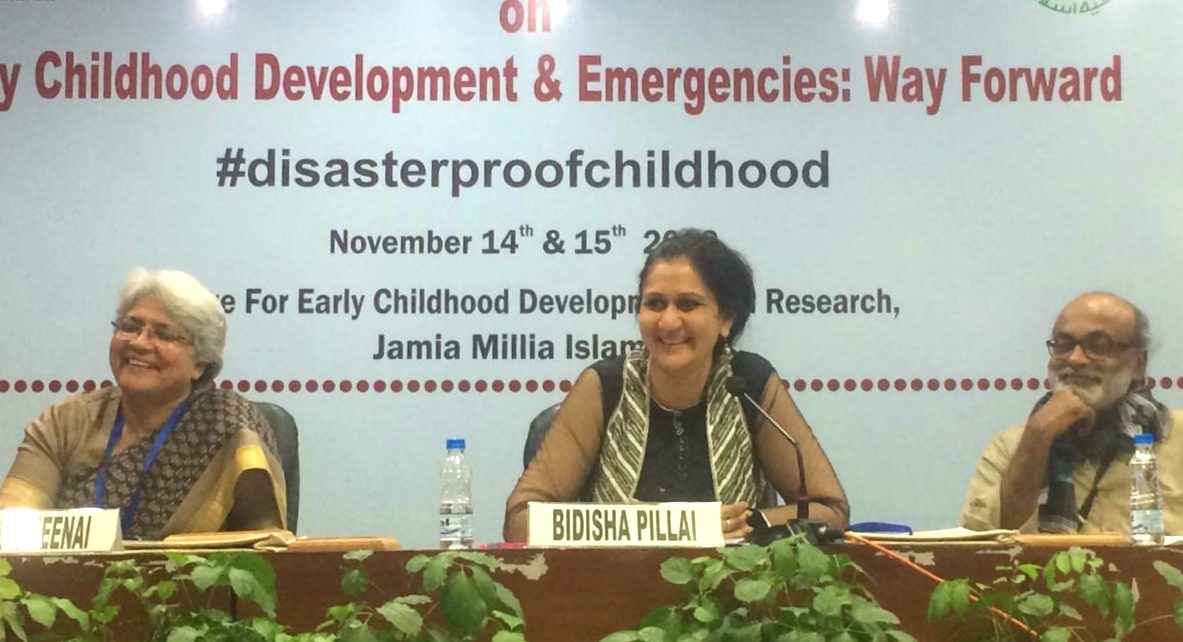
New Delhi | November | 14, 2018 :: As a commitment to promote professional and institutional development for quality improvement in Early Childhood Development (ECD), Centre for Early Childhood Development and Research (CECDR), a collaboration between Save the Children and Jamia Milia Islamia, inaugurated the 4th International Conference on Early Childhood Development and Emergencies: Way Forward in New Delhi today.
Coinciding with Children’s Day celebrations, the two-day event brings together national and international Early Childhood Development (ECD) professionals, last-mile grass-root organisations and practitioners, from Save the Children, UNICEF, NDMA, NIDM, NUEPA, Ambedkar University Delhi and others who would reflect on some key thematic areas under early childhood development in emergencies.
This conference is organised in response to contextual and systemic challenges that contribute to low disaster response and management, child protection or right to education. The outcome of the conference will be a draft policy brief highlighting the key issues and recommendations. The aim of this brief will be to evoke advocacy in the area of early childhood development and emergencies.
Speaking at the conference, Professor Zubair Meenai, Director, CECDR said, “Protecting children in humanitarian and natural crisis should be the priority by facilitating smooth recovery of young children at the time of emergency. We are proud to partner with Save the Children, India in looking for ways in which we can protect children and strengthen early childhood development.”
Bidisha Pillai, CEO Save the Children added, “Emergency situations exacerbate the problems associated with early childhood development. We need to think hard about the trauma and violence that the child undergoes. We have to start thinking multi-sectoral. While children are at the frontline of the impact of emergencies, they are also in the frontline of the solutions – therefore it’s imperative that we also involve them when we look at the way forward.”
Stating expectations from the Centre, Mr. Kamal Kishore, Member Secretary, National Disaster Management Authority, said, “To cater to children during emergencies, it is primarily important to fill in data gaps in identifying the number of boys and girls between 0-8yrs, affected by disasters. Further, minimum standards on relief, including specific standards on ECCD need to be set. In a trickle down, State Disaster Plans should have an ECCD lens with sensitization of officials and frontline workers for effective implementation.”
ECD has been defined as ‘a comprehensive approach to policies and programs for children and their parents, caregivers and communities from the prenatal period through children’s entry into school. Its purpose is to uphold children’s rights to develop their full cognitive, emotional, social and physical potential’. Children during emergencies are a vulnerable group, children in the age group 0 to 8 more so as they are completely dependent on adults for their survival and well-being. ‘Vital physical, socio-emotional and cognitive needs are too often overlooked in humanitarian response leaving children and their families’ farther behind’.
India, because of its unique geographical location and other circumstances is said to be the third worst affected country by natural disasters since 1995. This theme originates from reading about such current affairs in India that highlights that even though we have the national policies and systems in place, the actual response to any emergency is diverse.
India is not only experiencing natural calamities or disasters but endemic strife and violence that has happened in the past in the areas of North East, Jammu and Kashmir and in Left Wing Extremism (LWE) and has affected childhood and children in many ways. The recent floods in Kerala are an example which left children under the danger of vulnerability and abuse.



